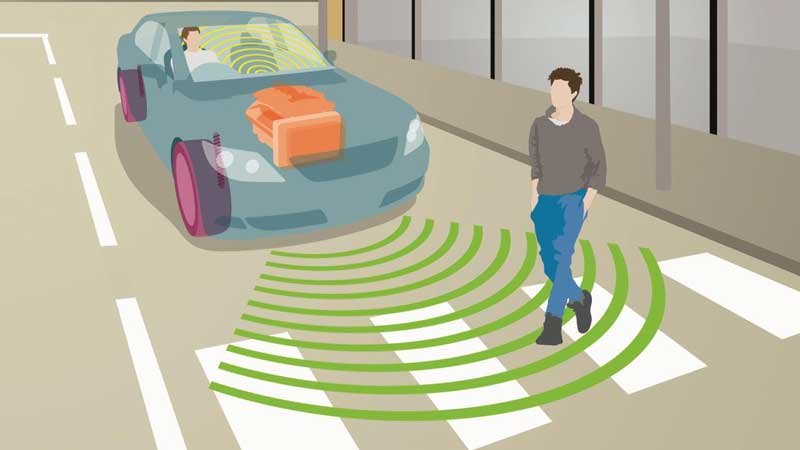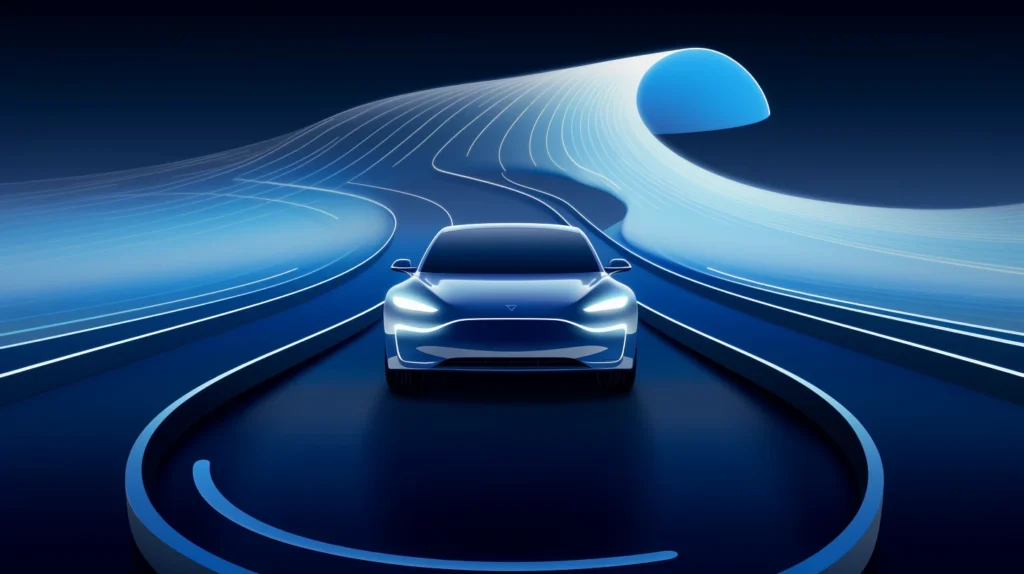Electric vehicles (EVs) are significantly quieter than petrol cars. Unlike traditional combustion engines, electric vehicles don’t have an engine but a motor system powered by a battery. Since electromagnetics doesn’t produce noise emissions like thermodynamics, the electric motor operates almost silently.
In fact, electric vehicles can sometimes be too quiet. At low speeds (below 30 km/h), they are considerably quieter than petrol cars. This difference in noise levels has prompted the European Union to introduce a regulation for electric vehicles, requiring a minimum noise level of 56 decibels at low speeds. To put this into perspective, 56 decibels is equivalent to the noise generated by a dishwasher, an office computer, or the gentle hum of a near-empty restaurant. On the other hand, combustion engine cars typically operate at around 65 decibels, comparable to a busy classroom’s noise level.

Image source: thedriven
How Noise is Produced in Cars
Car noise refers to the sounds emitted by the engine, tires, and various components of a vehicle. It is measured in decibels (dB), which quantifies the intensity of sound. The level of noise produced by cars can be influenced by several factors, including:
1. Engine Type: The type of engine, whether electric or gas-powered, can significantly impact the noise levels. Electric vehicles tend to be quieter due to the absence of combustion engines.
2. Engine Size and Design: The size and design of the engine can also affect noise production. Smaller engines and those designed with noise reduction features can result in quieter operation.
3. Exhaust System: The exhaust system plays a role in determining the noise emitted by a car. Factors such as the number and design of mufflers or the presence of sound-dampening materials can impact the overall noise output.
4. Tires: The type and condition of tires can contribute to the noise produced by a car. Tread pattern, tire material, and tire wear can all influence noise levels, particularly when driving at higher speeds.
These factors interact to create the overall noise profile of a car. Manufacturers continually work to improve noise reduction techniques and technologies to enhance the driving experience and reduce noise pollution.
Comparing Electric and Gas Cars
When it comes to noise levels, electric and gas cars have notable differences. Electric cars are generally quieter than gas cars, although they still produce some noise. The electric motor in an electric car emits a high-pitched whine, contributing to the overall sound. However, electric cars are significantly quieter overall due to the absence of a traditional engine and exhaust system. This quietness has prompted the implementation of regulations in countries like the United States and the European Union, requiring electric cars to generate some noise at low speeds to ensure pedestrian and cyclist safety.
In contrast, gas cars are known for their higher noise levels. The combustion process in gas engines produces considerable noise, further amplified by the exhaust system. The noise emitted by gas cars can vary based on engine size, design, exhaust system, and muffler configuration.
Not All EVs Are Created Equal
While it is true that electric vehicles generally have a reputation for being quiet, it is essential to recognize that not all EVs are created equal in terms of noise levels. The perceived quietness of an electric vehicle can vary depending on several factors, including the vehicle’s design, tire noise, and additional soundproofing measures.
For instance, electric cars with sleek designs and aerodynamic features generate less wind noise, contributing to a quieter ride.
On the other hand, larger electric vehicles, such as SUVs or trucks, may produce more tire noise due to their weight and the type of tires used. The road surface and driving conditions can also influence the noise levels experienced in an electric vehicle.
Furthermore, the level of soundproofing implemented by different car manufacturers can affect the overall noise reduction. Some EVs may invest more in advanced insulation materials or specialized noise-canceling technologies to enhance the cabin’s quietness. Therefore, it’s important to consider these factors when evaluating the noise characteristics of specific electric vehicle models.
The Future of EV Noise
As electric vehicle technology advances, so does noise mitigation and enhancement exploration. Engineers are continuously refining electric motor designs to reduce noise levels further. Improved insulation and sound-absorbing materials are incorporated into EVs to create an even quieter cabin environment.
Conversely, there is also a growing interest in enhancing the sound experience of electric vehicles. Some car enthusiasts argue that the absence of engine noise takes away from the thrill and excitement of driving. To address this, certain automakers are exploring the possibility of introducing customizable sound options that allow drivers to simulate the sound of a traditional combustion engine or even choose from a range of unique artificial sounds.


